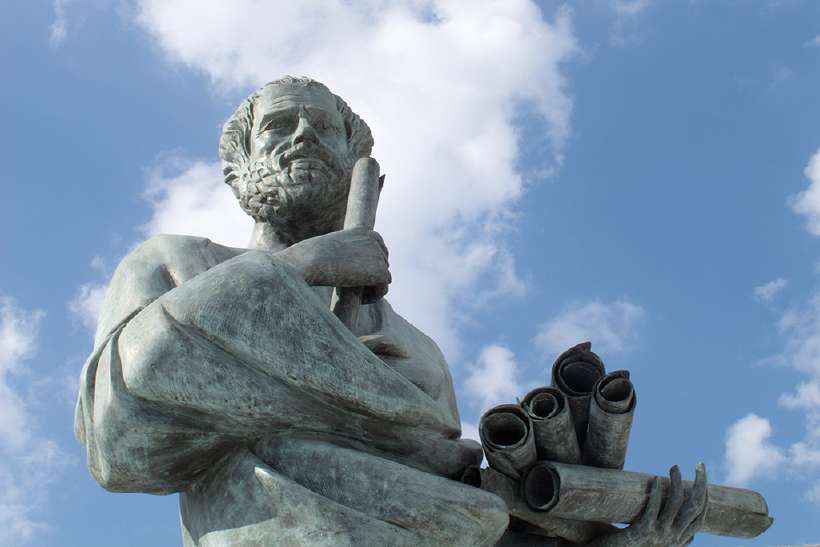Aristotle can’t remain Ignorant!
Home / Non Fiction for Kids / Features for Kids / Aristotle can’t remain Ignorant!
The Greeks were a passionately curious lot. When Alexander the Great set off in 334 BC on the famous expedition that took him over the Hindukush into Tashkent and Kashmir, he was accompanied not only by navigators, guides and surveyors, but historians and philosophers as well.
![Aristotle can’t remain Ignorant! [Illustration by Shinod AP]](/media/features-163_1_hu3d0db5c548efdf62a34010f4db7e6ad6_9476_820x0_resize_q60_box.gif)
Alexander had been taught by the philosopher Aristotle, and we are told that he ordered everyone throughout Greece and Asia who made their living by hunting, fowling, fishing, beekeeping and so on, to make sure that “Aristotle should not remain ignorant of any animal born anywhere.”
So when Aristotle discusses elephants, it is the diet, digestive organs, teeth, age of maturity, and length of pregnancy of the Indian elephant that he is talking about, not the African variety.
Aristotle himself argues in one of his most stirring passages that everything is worth investigating, however lowly. “We should not childishly complain against the enquiry into less worthy animals; for in everything natural there is something marvellous. We should approach the study of every animal without shame; for in all of them there is something natural and beautiful.”

Aristotle firmly believed that we have a duty to know. That is what humans are there for, and that the spirit of enquiry is what leads them to happiness. He was convinced it is the closest that humans can come to being immortal.
More about Aristotle
Born at Stagira in Macedonia, Aristotle was one of the most influential philosophers of ancient Greece (the city state of Macedonia was under the rule of Athens, the towering symbol of Greek civilisation).
He was the star disciple of the renowned philosopher, Plato, who studied under the great teacher, Socrates. At 17, Aristotle joined Plato’s academy in Athens, and remained there until the philosopher’s death.
Between 343 and 340 BC, Aristotle tutored the young Macedonian, Alexander, later known as a great conqueror. In 335 BC he returned to Athens where he founded a school, the Lyceum.
Here he organised and carried out research on many subjects, and built a great library in the belief that it was necessary for humans to probe every aspect of the world around them. On the death of Alexander, in 325 BC, anti-Macedonian feeling in Athens caused Aristotle to retire to Chalcis, where he died, in 322 BC.
From the Woodpecker volume 2000, brought out by the Academy of Mountain Environics, an NGO based in Dehra Dun, in north India. Creating environmentally sustainable technologies at the local level is its main concern.
428 words |
4 minutes
Readability:
Grade 11 (16-17 year old children)
Based on Flesch–Kincaid readability scores
Filed under: features
Tags: #philosopher, #athens, #greece, #greeks, #alexander
You may also be interested in these:
Who invented Hello?
Godly Guardian for the Road
Organic life, we are told, has developed gradually from the protozoon to the phi...
Everything is made of something
Scientists Find More on the Eureka Man